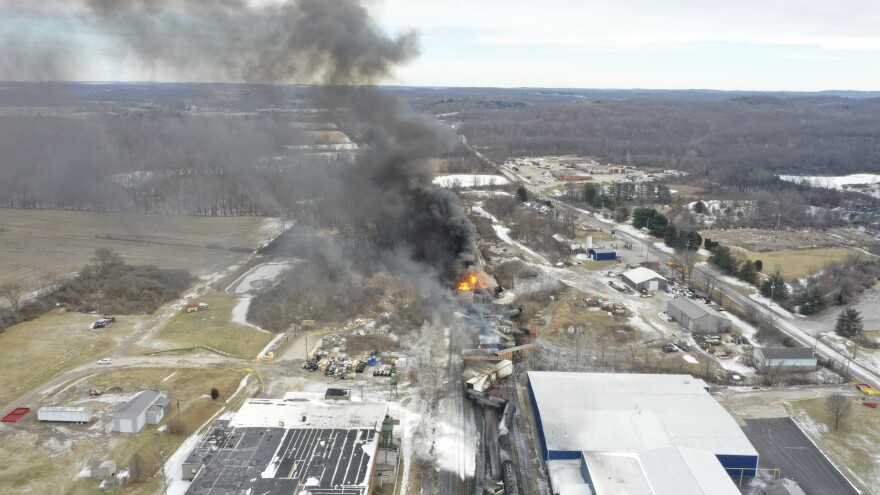The East Palestine train derailment was deadly for aquatic wildlife.
The Ohio Department of Natural Resources said Thursday that it collected dead aquatic species over a two-day period earlier this month after the Norfolk Southern train derailed and officials performed a controlled release and burn of the toxic chemical vinyl chloride.
The chemicals immediately killed some aquatic life within a five-mile span of the accident site, Director Mary Mertz said.
“We would estimate that over the affected site, a total of 38,222 what we would refer to as minnows were potentially killed as a result of the derailment," Mertz said.
About 5,500 other species were killed, but there’s no sign of continued distress nearly three weeks later, Mertz said. None were threatened or endangered species.
Fish have already returned to the affected waterways, Mertz said.
"We're happy to see that live fish have returned to Leslie Run, that's a great sign," she said. "The fact that we're not seeing any fish in distress is a great sign."
Fish from the Ohio River are safe to eat. Aquatic life in the Ohio River were unaffected by the derailment, she said.
"We had no signs of a fish kill in distress further than Bull Creek and so we don't have any reason to think that there is an issue there," Mertz said.
ODNR will be monitoring the impact on hellbender salamanders, which are endangered.
"It will require some technology to track what's going on with those hellbenders," Mertz said. "We're working with a university now to bring that technology into place so we can survey and see if there has been any damage. We haven't seen anything yet."
ODNR plans to remain in East Palestine for the next few weeks. Mertz is unsure how long it will take for the ecological system to recover.
"Each spill that occurs is unique and different and we will monitor it but if I tried to give you a timeline on that, I'm confident it wouldn't be accurate," she said.
As for the response, Mertz said her agency handles fish kills frequently.
"It wasn't that long ago we had a similar size fish kill for a different reason in a different part of the state," Merz said. "This is what we do. We respond to these, we assess them, we figure out what we need to do, what the assessment is on recovery."
Copyright 2023 . To see more, visit . 9(MDA5NTM4MTIyMDE0MTg3NDc2MTVlZjdmNQ001))



